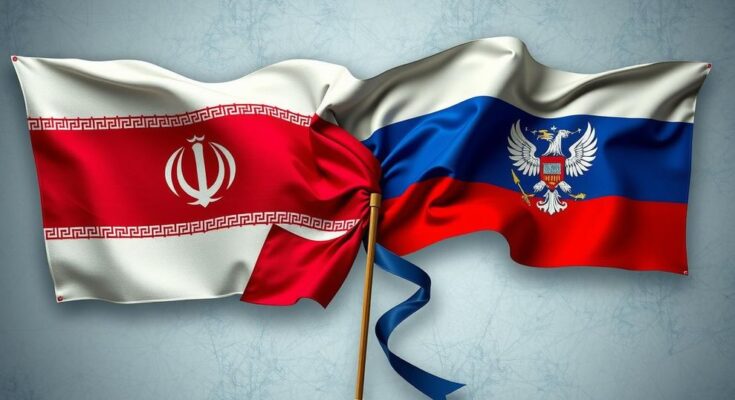Russia and Iran are poised to sign a comprehensive strategic partnership treaty, focusing on defense and security cooperation, amid increasing collaboration motivated by the Ukraine conflict. The agreement comes as both countries navigate significant Western sanctions and reflect a commitment to bolstering mutual strength against outside pressures.
The anticipated treaty between Russia and Iran, heralded as a “comprehensive strategic partnership,” is set to be signed during Iranian President Masoud Pezeshkian’s upcoming visit to Moscow. This partnership has emerged against the backdrop of the ongoing Ukraine conflict, amid heightened cooperation between both nations, which have been characterized as ‘pariahs’ by the West. Russian President Vladimir Putin is expected to formally meet with President Pezeshkian on January 17 to finalize this treaty, which focuses primarily on defense and security collaboration.
The treaty signifies a mutual commitment to strengthen defense interactions and regional stability. Russian Foreign Minister Sergey Lavrov emphasized that this agreement reflects the parties’ shared aspiration for enhanced cooperation in defense sectors, responding to persistent global tensions. In addition to defense discussions, the leaders will address trade, investment, logistics, and humanitarian concerns, further solidifying bilateral relations.
Furthermore, the strategic partnership has seen robust cooperation in unmanned aerial vehicle (UAV) technology, with Iran supplying its ‘Shahed’ kamikaze drones to Russia since the onset of hostilities in Ukraine. Reports suggest Iran may also establish a significant drone production facility within Russia.
The recent geopolitical shifts in the Middle East, highlighted by the downfall of Bashar al-Assad in Syria, further compel Iran and Russia to consolidate their alliances, particularly against perceived threats from the West. Iranian officials have articulated that the treaty is pivotal for reinforcing national independence, with statements emphasizing Iran’s self-reliance and resistance to foreign influence.
Despite the potential for enhanced military and technological collaboration, both nations face extensive sanctions from the United States and the European Union due to their actions in the Ukraine conflict. Western powers express concern over possible exchanges of ballistic missile technology from Iran to Russia, although conclusive evidence remains absent.
In recent years, Russia and Iran have increasingly aligned their foreign policies, particularly as they face similar challenges from Western nations. The geopolitical landscape shaped by the Ukraine conflict has prompted them to deepen their defense and economic cooperation to bolster their mutual security interests. Both countries continue to navigate sanctions imposed by the United States and European Union, seeking alternative methods to fortify their positions internationally. The impending treaty is not merely a diplomatic formality; it embodies a reaction to persistent global pressures and shifts in regional power dynamics.
The impending signing of the treaty between Russia and Iran marks a significant milestone in the evolving partnership of the two nations. It underscores their mutual commitment to collaboration in defense, trade, and other sectors while responding to the challenges posed by Western sanctions. This strategic alliance, focusing heavily on military cooperation, indicates a clear stance of defiance against Western influence and an effort to bolster regional security, setting the stage for further development in their bilateral relations.
Original Source: oilprice.com




